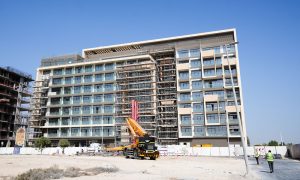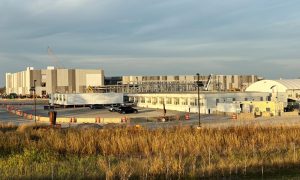Dubai ranked leading smart city in the Middle East
Huawei and Navigant report studies Gulf cities’ strategy and execution of smart city campaigns

Dubai has emerged as the Middle East’s leading smart city, according to an index that weighed up the high-tech infrastructure in several cities in the region.
Navigant, the global research firm, assessed the cities according to their vision and execution of ‘smart’ initiatives, and said Dubai stood out for its “strategic vision and clear understanding of the practical requirements to deliver on its vision”.
The Smart Cities Index was commissioned by Huawei with the aim of understanding the level of readiness of cities in the Middle East for the next level of smart city adoption and deployment, a statement said.
“As countries in the Gulf are increasingly diversifying their economies away from fossil fuels, they are also coping with the need for rapid digitalisation in business and government,” said Safder Nazir, vice president of Smart Cities and IoT at Huawei Middle East.
“Huawei is committed to helping countries in the region in their digital transformation through smart city initiatives that are customised to meet specific needs. We undertook the Gulf States Smart City Index in order to better understand the current levels of readiness of different cities so that we are better able to serve this region.”
The study found that the foundations laid by Dubai’s leadership and the Smart Dubai Office will provide an “excellent basis for a range of innovations that will have a significant impact on the city’s operations and quality of life”.
“Dubai stands out in this Navigant Research ranking as a Leader among cities for its strategic vision and ambitious implementation program,” said Eric Woods, research director at Navigant Consulting.
“Overall, cities in the region are expanding their digital infrastructures, developing new services, and investing in large-scale building programs. The emerging focus on open data and data analytics programs is an important next step. This will be one of the most important developments in the next stage of smart city evolution in the Gulf region.”
The Smart Dubai roadmap has targeted the delivery of 1,000 services across 100 initiatives by 2017. As of September 2016, it has documented more than 500 current and planned smart services and initiatives, of which 150 have been completed.
Programmes such as the Dubai Data Initiative for data sharing and analytics, smart mobility solutions for traffic control, a smart grid program for better management of power and water consumption and smart health services are examples of how the city has implemented smart city strategies, the study said.
The study profiled seventeen cities and developed an index of ten cities classifying each of the ten as Leader, Contender, Challenger or Follower.

















